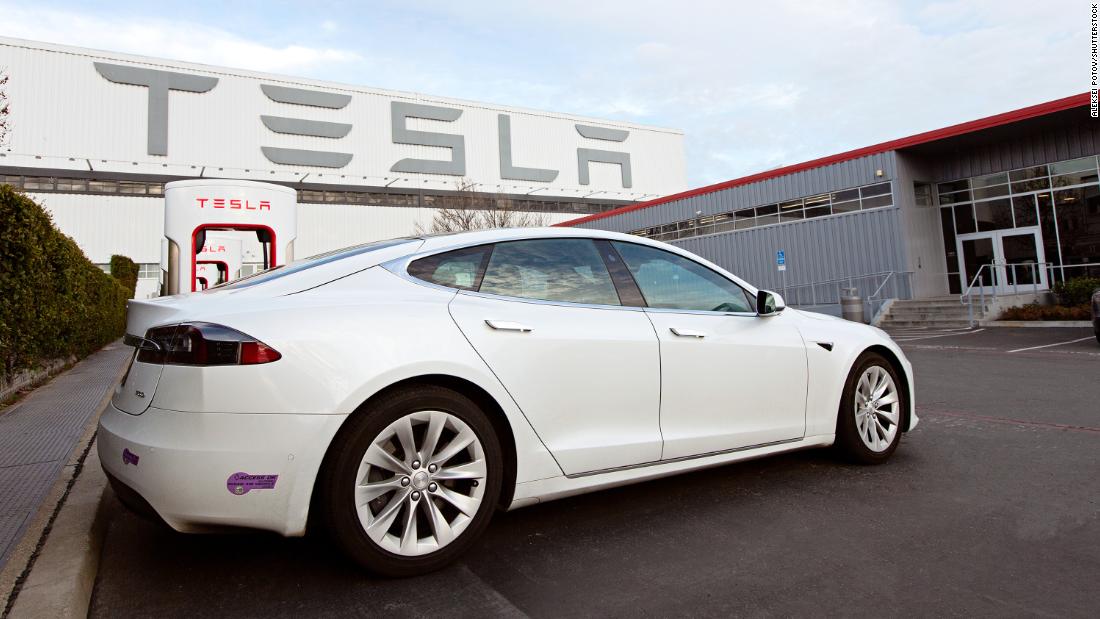
Earlier this month, Musk said that "many exciting things" would be on show, largely focused on the crucial technology that propels the company's electric cars.
In August, Musk said that in probably three or four years, much more efficient batteries would go mainstream. Some could provide nearly twice the power of today's batteries, he implied.
If Tesla delivers on the prediction, electric vehicle costs would reduce significantly, driving more sales. Electric vehicle adoption has been held back by the higher price point, which can cost as much as 50% more than similar petroleum-fueled vehicles.
Whether Tesla and Musk, which have a history of aggressive timelines and missed deadlines, deliver on any new promises remains to be seen. Musk has previously said he expected a Tesla to drive itself coast to coast by the end of 2017, that Tesla autonomous robotaxis would be operating in 2020, and that space tourists would circle the moon by 2018.
Though three months still remain in 2020, Tesla has yet to sell a fully autonomous car, let alone one capable of robotaxi operation.
Musk and Tesla are known for flashy live events in which the company shows off new creations, but it hasn't always stuck with its plans. In 2013, Tesla described plans to swap batteries at Tesla charging stations, and said it would be faster than filling the car with gas. But two years after promoting the technology, Musk said in 2015 that the company had tried it and found customers weren't that interested.
Musk's talk of a major battery breakthrough, however, suggests a shift to solid-state technology, the "holy grail of batteries," according to Richard M. Laine, a University of Michigan professor who researches batteries.
"We all know Elon Musk is a rather optimistic guy. So maybe three to four years, maybe five to six. Maybe higher than that," Laine said. "It's a very very big set of ifs."
In a solid-state battery, the part of the battery that's traditionally liquid is replaced with solid materials. If developed, solid-state batteries are expected to bring several advantages, experts say. Lithium-ion batteries, which are used in everything today from phones to laptops to electric cars, are highly flammable under the right conditions. The design and materials in solid state batteries promise to reduce the risk of fires.
Solid-state batteries should have a higher energy density, which could help reduce the costs of electric vehicles as battery packs won't need to be as large. Vehicles' range could improve too, as more batteries could be included in a small car.
M. Stanley Whittingham, who won a 2019 Nobel Prize for his development of lithium-ion batteries, cautions that solid-state batteries may be much more expensive to manufacture than traditional batteries. He also said solid-state batteries may not have the needed power capabilities.
He expects solid-state batteries will first come to small devices such as cell phones and smartwatches, before going into larger things. Those markets can tolerate higher costs, he said, because consumers are less likely to notice a price increase on a device with a small battery, rather than a large one where the battery makes a big contribution to the overall price.
Another challenge for solid-state batteries is longevity, according to Yang Shao-Horn, an MIT professor who studies batteries.
For example, an electric car with 500 miles of range isn't that great if the battery loses most of its capacity in a matter of months. Shao-Horn said she's not aware of any solid-state batteries that are three or four years away.
Others are more optimistic about solid-state battery timelines. Solid Power, a Colorado-based startup, says it's testing 300 Watt-hours per kilogram batteries with auto suppliers already. CEO Doug Campbell told CNN Business he expects to see the 400-mile benchmark achieved in the next several years.
Yi Cui, a Stanford professor who still sits on the board of Amprius, a battery startup he founded, thinks Musk's prediction is accurate. Cui said that Amprius is already testing a battery with 400 Watt-hours per kilogram. He thinks that innovations, such as using silicon in batteries, can lead to major breakthroughs.
"It's the gift that God sent to us," Cui said. "This material is so powerful."
Bagikan Berita Ini















0 Response to "Tesla's 'Battery Day' is here. This is what to watch out for - CNN"
Post a Comment